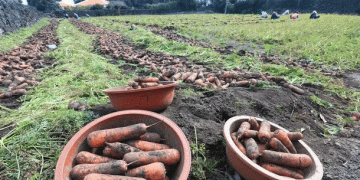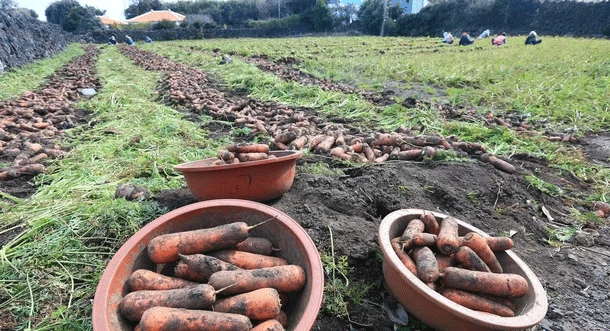In a significant move toward agricultural self-sufficiency, South Korea’s Jeju Island—responsible for approximately 70% of the nation’s carrot production—has developed and begun distributing its first domestic carrot variety. The Jeju Agricultural Technology Center announced that its new cultivar, ‘Tamra Hong,’ will be commercially available to farmers starting next year through seed company partnerships. This breakthrough addresses a critical vulnerability: despite dominating domestic carrot cultivation, Jeju has historically depended on foreign-sourced seeds for 99% of its production, spending roughly 1.9 billion won ($19 million USD) annually on imported genetics while facing increasing challenges in seed security and availability.
The development of Tamra Hong represents a strategic eight-year investment in agricultural sovereignty. Initiated in 2019, the breeding program successfully achieved plant variety protection registration before signing a licensing agreement with a seed company in 2021. After successful seed production this year, the variety is now poised for full commercial deployment by 2026. This timeline reflects the painstaking process of domestic seed development, yet addresses an urgent need identified by the Food and Agriculture Organization (FAO) in its 2024 report on global seed security, which highlighted that over 70% of countries worldwide face moderate to severe dependency on foreign seed sources for key crops, creating significant economic and food system risks.
Tamra Hong’s agronomic characteristics suggest strong commercial potential. As a late-maturing variety requiring approximately 150 days to harvest, it is particularly suited to overwintering cultivation patterns in Jeju’s climate. Early reports indicate superior color intensity, higher sugar content, and excellent texture, making it especially valuable for environmentally conscious farming operations. These quality parameters align with growing market trends identified in the 2025 Global Vegetable Seed Market Analysis, which noted increasing consumer preference for vegetables with enhanced sensory qualities and sustainable production credentials.
Jeju Island’s development and deployment of the Tamra Hong carrot variety represents more than just agricultural innovation—it demonstrates a viable pathway toward seed sovereignty for regions heavily dependent on imported genetics. By investing in domestic breeding capacity and establishing effective partnerships between public research institutions and private seed companies, Jeju has created a model that other specialty crop regions would be wise to emulate. The economic implications are substantial: reducing foreign seed dependency not only conserves national currency but also builds resilience against supply chain disruptions and genetic uniformity. For farmers, access to locally adapted varieties like Tamra Hong promises improved performance and potentially higher market value. As climate change and geopolitical tensions continue to threaten global seed systems, Jeju’s proactive approach offers a template for securing agricultural production through genetic self-reliance.































